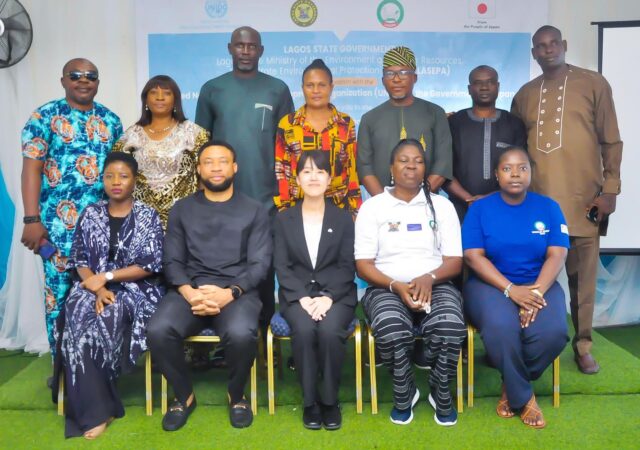At the recent Major Energy Marketers Association of Nigeria (MEMAN) quarterly press briefing, various speakers advocated for the enabling environment for competition to thrive and not monopoly as only competition would guarantee better pricing, increased consumer awareness and quality products.
They stated this during the session on “Supply Diversity and Competition”.
Former Chief Operating Officer, Upstream at the Nigeria National Petroleum Company Limited (NNPCL), Alhaji Bello Rabiu, with a presentation on “Immersion of Dangote Refinery in the PMS Supply Chain”, was of the view that promoting supply diversity enhances competition in the petroleum industry, which is supported by effectively implementing the Petroleum Industry Act (PIA) 2021 to streamline operations and reduce costs in refining or importing petroleum products.
According to Rabiu, “With consumption capacity estimated at about One Million MT (1.341 billion Litres) of Premium Motor Spirit (PMS) every month, currently being supplied through DSDP importation program of NNPCL whereby local and international traders are contracted to lift Nigerian crude oil owned by NNPCL and deliver petroleum products of equivalent value to Lagos; this remains the only supply source of PMS in the Nigerian market due to inability of other players to secure Foreign Exchange (FX) for direct importation”
“Thus, NNPCL is effectively the only supplier of PMS in Nigeria today.” he posited.
Being the only supplier and importer of PMS in Nigeria, NNPCL is currently the determinant of PMS price as other players are only adding their margins to arrive at pump price depending on location.
These include: reception jetties, lightering through ship to ship transfer, storage through coastal, depots, transportation to retail stations and bulk marketing and retailing.
Calling for a competitive, efficient and sustainably liberalized downstream petroleum sector in Nigeria, Alhaji Rabiu declared that unfortunately there’s a lot of opacity in the downstream sector, as it was announced there was deregulation, however, the true position is that subsidies are being paid but no body seems to now the actual amount and for what volume.
According to Rabiu, competent players must be allowed to fully participate to grow the market through deployment of current technology, good governance and international best practices. He also advocated for a strong regulator, to enable transparent and fair competition amongst players and and to ensure effective control of natural monopolies such as pipelines.
Speaking on ‘Issues in Local Supply of Refined Petroleum Products’, Dr. Abiodun Adedipe, Founder and Chief Consultant of B. Adedipe Associates Limited, cautioned that recriminations should be set aside while the economy needs urgent fixing moving forward.
Marketers should ensure transparency and competition without monopoly in importation and domestic production.
Dr. Adedipe added that all stakeholders have to take responsibility for their roles in the value chain by not passing the bulk, aggressively pursuing energy diversification for the country.
Adedipe recommended engaging stakeholders to ensure cost recovery for refiners and PMS importers, resisting anti-competitive practices, enforcing fair competition, and managing price volatility through guided prices. He also highlighted the need for increased local refining, alternative energy sources, and recognizing the impact of the Dangote Refinery in the deregulation process.
With comments and questions undertaken, both experts and energy editors recommended recognizing the interconnected roles of various industry stakeholders, including oil producers, refiners, marketers, transporters, consumers, media, NGOs, and development partners.
They advocated for periodic, all-inclusive industry stakeholder meetings to keep the industry informed on various issues. Promoting sustainability, transparency, compliance, fair practices, and supporting the expansion of local refineries are crucial for the industry’s growth and economic sustainability.







